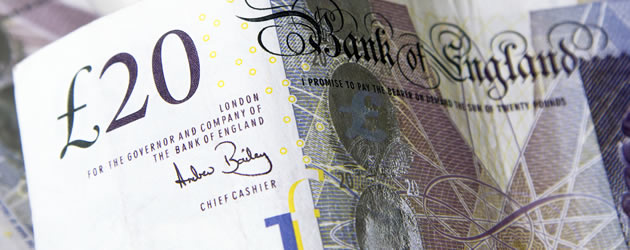Contrary to a stronger German trade surplus and declining UK production figures the Euro to Pound Sterling (EUR/GBP) exchange rate has retreated from a twenty-three month high on Friday.
EUR/GBP Exchange Rate at Twenty-Three Month High on ‘Brexit’ Worries
European Central Bank (ECB) President Mario Draghi repeated his oft-said pledge to ‘do whatever it takes’ to encourage the growth of inflationary pressures within the currency union on Thursday. This fresh commentary resounded with the equally dovish tone of the March ECB meeting minutes, which showed that the majority of policymakers supported the central bank’s latest monetary loosening measures. Ultimately this failed to have a substantial downside impact on the Euro (EUR), however, as US Dollar (USD) volatility and safe-haven demand supported the single currency.
Pound Sterling (GBP) suffered further bearishness as it emerged that the UK government had allocated 9 million Pounds of taxpayers’ money on a leaflet campaign encouraging an ‘In’ vote at the EU membership referendum. As this caused considerable consternation amongst the ‘Out’ camp the ensuing round of intensive debate prompted a fresh bout of ‘Brexit’ uncertainty. As a result the Euro to Pound Sterling (EUR/GBP) exchange rate benefitted, trending higher to reach a twenty-three month high of 0.8109.
Euro (EUR) Exchange Rate Weakens despite German Trade Surplus Bettering Forecast
Some of the shine came off the Euro on Friday morning, however, in spite of the German trade surplus widening further-than-anticipated in February. Rising from 13.4 billion to 20.3 billion Euros, this bullish result failed to particularly encourage investors, with markets inclined to dismiss the more positive implications of the data. Concerns remained over the longer-term outlook of the German economy, as well as the wider Eurozone, helping to diminish the strength of the Euro once again.
Investors were given little fresh cause for Pound optimism as the latest UK industrial and manufacturing production figures proved underwhelming. Industrial output unexpectedly contracted on the year in February from 0.1% to -0.5%, while manufacturing production plunged afresh from -0.1% to -1.8%. Although this would indicate falling demand and bodes ill for the struggling UK steel industry the EUR/GBP exchange rate nevertheless remained in a slump.

EUR/GBP Exchange Rate Forecast: Pound Unlikely to Hold Gains as UK GDP Estimate Predicted to Disappoint
This afternoon’s NIESR Gross Domestic Product Estimate for March may undermine the Pound’s recovery, as growth is expected to slow due to mounting economic uncertainty. Should the estimate fail to show a particular slowing, however, Sterling could be prompted higher across the board on the suggestion of a more robust UK economy.
Into next week the latest UK and German Consumer Price Index reports are likely to trigger renewed volatility for the EUR/GBP exchange rate. Any signs of weakening inflationary pressure are expected to prompt downwards momentum, with a decrease in UK inflation expected to weigh heavily on the appeal of the Pound.
Current EUR, GBP Exchange Rates
At the time of writing, the Euro to Pound Sterling (EUR/GBP) exchange rate was slumped in the region of 0.8072, while the Pound Sterling to Euro (GBP/EUR) pairing was trending higher around 1.2388.



